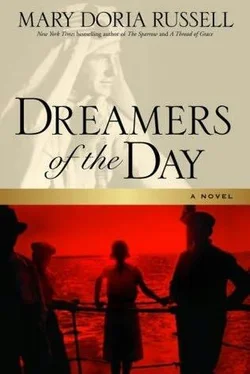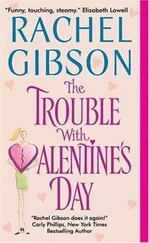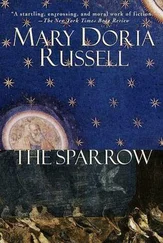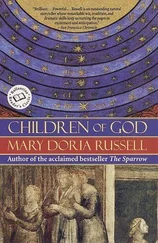I suppose you find my laments self-absorbed and unseemly. Your mother left you a wealthy woman. You should be grateful, Agnes. Many a war widow was worse off. True enough, though in my own defense, I will point out that I was not at my best, having been so recently so ill.
That said, I will be honest with you. I’d have traded every penny of my inheritance for the memory of one word of love, or a single fond caress.
Like many modern mothers of her time, Mumma was much influenced by Dr. Emmett Holt and Professor John B. Watson. Young people raised in the aftermath of the Civil War were effete and flabby, these experts declared. They had been spoiled by sentimental, unscientific mothers who weakened the nation’s youth with loose schedules and sloppy displays of affection. In his manual The Care and Feeding of Children, Dr. Holt warned mothers that babies were not sweet little angels but small animals with fearsome appetites whose spirits needed breaking, just like those of wild horses. To rear a responsible adult, regularity in all things had to be imposed, for a well-adjusted adult was defined as one with iron habits and rigid self-control.
Above all, mothers must avoid displays of tenderness. “Mother love is a dangerous instrument that may inflict a never-healing wound,” Professor Watson warned. Merely to touch a child unnecessarily would place at risk that child’s future success and happiness. Maternal solicitude was not merely unsavory and unwise but a corrupting dereliction of duty.
In your time, adults strive to be “good parents,” but in my day, it was the business of children to be good and the solemn duty of parents to punish them when they were bad. In the spirit of scientific modernity, and with a calm sense of moral certainty, therefore, Mumma trained her children and her dogs with similar cool competence.
The childhood discipline that Ernest ran from—and that Lillie laughingly evaded—I truly desired to be governed by. I might have been annoying and, too often, I asked questions before I did as I was told, but I was as obedient as I knew how to be, even when I was small. How, then, had I so signally failed to elicit Mumma’s approval and pride? Why, I wondered, had my questions rankled when Lillie’s charmed? Was it merely that Lillian was a pretty child and graceful, while I was homely and awkward?
Like Rosie, I was a poor specimen of my breed. My wandering eye may have seemed to Mumma a constant silent accusation that she’d given birth to flawed stock. And as a toddler, I wailed so loudly when she splinted my arms to keep me from sucking my thumb that she gave in; my spoiled teeth were no doubt a rebuke to her weakness every time I smiled, but I don’t quite believe that was the whole explanation.
You see, Mumma was easily able to answer Lillie’s questions about the Bible and God and what Jesus wanted from us, about what was good and what was sin. My questions were most often not “What?” but “Why?” Why did people think one thing and not another? Why could things not be different from the way they were? Why would God blame little babies for what Eve did? If Jesus was God, and God was going to forgive Original Sin after the Crucifixion, and the whole Trinity knew that was going to happen, why did Jesus still have to die on the cross? It didn’t make sense to me.
Once, I remember, we were walking home from services on Sunday, and I was terribly upset about the sermon. “I don’t think God’s being fair,” I said. “Asking a person if he wants to spend all eternity in heaven or hell is like asking a little boy like Ernest what he wants to be when he grows up. We can’t understand infinity. Why would God punish a little finite person forever? And what could a finite person do to deserve an eternal reward?”
Alone, in what I still thought of as Mumma’s house, I could hear echoes of her exasperation with such questions. “Oh, Agnes,” she’d sigh. “The things that pop into your head and out of your mouth …”
And that would be the end of that.
The estate work seemed endless but, through it all, Rosie was nearby and her company made the tasks more bearable. Dachshunds like to burrow, and Rosie would scoop out a cave in a basket of quilt scraps or crawl under an errant sweater. She could be content for hours, fast asleep, but if I sat back in my chair or laid my head in my hands as melancholy or exhaustion overtook me, she’d hop right out, and I’d feel small, soft paws go pitty-pat on my knee.
Pay attention, Rosie tapped in dachshund Morse . You aren’t alone. I’m here.
I’d pull her up into my arms. She was the size and weight of a four-month-old baby, and it was comforting to hold her against my chest until I’d recovered my composure. “What do you think, Rosie?” I’d ask her then. “Shall we go for a walk?”
At the sound of the word “walk,” she’d hurl herself off my lap with a steeplechaser’s leap, then pirouette at the doorway, delicate pointed nose tossed repeatedly in the direction of the road. As I put on my hat and gloves, she’d spin again to register her approval. Good girl, Agnes! Yes, yes, yes! Most certainly! Time for a walk!
Outdoors, she was joy embodied, trundling cheerily at my side, or veering off to track an elusive chipmunk, or falling behind to investigate some loathsome reminder of another animal’s passage. If you’d seen us, you might have rolled your eyes and thought, How pathetic. An old maid and her spoiled little dog. But Rosie was less a pampered pet than a prizefighter’s trainer, insisting that I do my roadwork twice a day, always pressing to go a bit farther.
Though she never allowed me to sink for long into discouragement or loneliness, Rosie seemed to understand when I simply had to rest. Recovery from the Great Influenza was slow. The fever broke, the aching ended, breathing became easier, but for months afterward, one had hardly any mental energy and tired very easily. For a long time, I napped every afternoon with Rosie curled beside me, warm and sweet.
There is a difference, I discovered in those shuttered hours, between mourning and grief. Mourning is soft and sad. I mourned my brother, Ernest, and Lillie’s husband, Douglas, and my two young nephews, especially. I thought of what those fine boys could no longer enjoy and of what they would never experience. To die so young—just as they had begun to fulfill their promise … My sadness was for them, but not much for me.
Grief, by contrast, is sharp and selfish. The loss feels like deprivation, as though something rightfully one’s own has been unjustly stolen away. Oh, how I grieved for Lillian! I missed desperately the elements of surprise and gaiety she so often brought to my unremarkable days.
Pull yourself together, I could almost hear Mumma say. Make a list. Get things done.
Good advice, of course. Each morning, I wrote down my tasks for the day. Each evening, I crossed some off and added others, chipping away at the mountain of responsibilities, bit by bit. It was all I could do to take care of my own small affairs at my own slow pace. As I struggled through my duties, I thought sometimes of President Wilson, who had just returned from Europe after the Versailles Peace Conference and was dealing in those same days with great affairs of state.
I was not among those who applauded the president’s decision to take us into the Great War, but I always try to be fair-minded. He and our soldiers deserved credit for hastening the conflict’s end, in the opinion of many Europeans, who had once believed their nations would be forever locked in stalemate, with the war killing mothers’ sons as steadily as they could be born, raised, drafted, and sent to the front. America broke that impasse and released them from despair, and the Europeans were truly grateful.
Читать дальше
